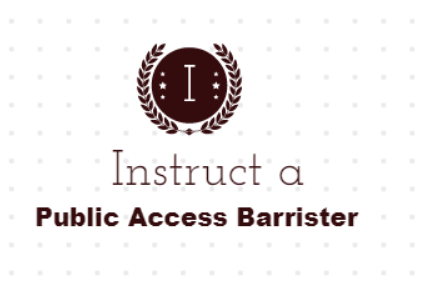By Suliat Jimoh, Paralegal at Winckworth Sherwood
The recent cases of Scheldebouw v Evanson [2022] and Meaker v Cyxtera Tech UK Ltd [2023] have served as reminders of how the courts determine the application of without prejudice privilege – particularly in certain communications regarding the termination of employment. There are various criteria which must be met, however, often it is not as straightforward as one might expect…
Here is a quick reminder of the without prejudice rules to ensure that you do not fall foul of being able to rely on this useful privilege….
What is without prejudice privilege?
Without prejudice privilege typically covers communications made in writing or verbally, excluding them as evidence of admissions against the interest of the party which made them being put before a tribunal or court. They are, therefore, privileged communications.
The privilege exists to encourage parties either in or contemplating litigation to settle their disputes outside of court. The rationale behind this privilege is that these settlement discussions allow parties to speak in an open, honest and direct manner so that this can be achieved.
The privilege will still apply even if the matter does not end up in settlement and it covers all matters that are disclosed during these communications, regardless of whether anything communicated is an admission of liability.
Since it is a joint privilege, it can only be waived by both parties agreeing to do so. If one party wishes to present without prejudice communications and the other party does not, the matter (but generally not the content in issue) has to be put before the court for a decision as to the validity of the privilege.
The Rules
For the privilege to apply, it is imperative that there must have been an existing dispute when the without prejudice communications took place and these communications must be a genuine attempt to settle the matter in issue.
It is also highly advisable (if not essential) to label the relevant communications “Without Prejudice”, although the absence of this label will not always be fatal to determination of the nature of the communication as not without prejudice. It is, of course, always better to mark it as such, to make it 100% clear.
If it is not labelled ‘Without Prejudice’ then the courts may apply an objective test to determine whether the privilege will apply.
If the parties are – in parallel – having open communications, it is even more important to clarify and agree which communications should be treated as ‘Without Prejudice’ and which should not to ensure the privilege will apply.
Case Application
This is highlighted in the recent case of Meaker v Cyxtera Technology UK Ltd [2023] EAT 17 in which the Employment Appeal Tribunal’s determination was that the Respondent’s letter which was marked ‘Without Prejudice’ to be a letter of termination that was admissible in the tribunal. Although the letter referenced a settlement agreement, the majority of the letter detailed the termination of the Claimant’s employment (which was thought to be mutually agreed at the time), hence why it was an open communication. It also showed that there was not a dispute in play – which is crucial for a communication to be classed as without prejudice.
It is also key to note that if negotiations are verbal, it must be agreed that these are on a without prejudice basis before they proceed, in order that the parties are crystal clear they are inadmissible.
A recent example of such an error is found in the case of Scheldebouw v Evanson [2022] EAT 157 in which The Employment Appeal Tribunal held that an Employment Tribunal were correct in their decision that without prejudice privilege had not arisen during a meeting where the termination of the Claimant’s employment and amount of holiday he was owed was discussed.
In this case, during the meeting between the Claimant and the Respondent, there was no suggestion from either party that the meeting should be without prejudice. The Respondent later wanted details of that meeting covered by the privilege, however the tribunal concluded that there was not a dispute between the
Claimant and Respondent at the time of the meeting nor was litigation being contemplated, further, neither party referred to the meeting as without prejudice and the only issue of disagreement was in relation to holiday pay.
Exceptions
Of course, without prejudice privilege is not a blanket privilege. There are certain exceptions to its application.
Where there has been the presence of fraud, misrepresentation, or “undue influence” in reaching an agreement, the privilege will not apply. Estoppel is also another exception; which is where one party has relied on a promise or proposition of the other party who then rescinds that proposition.
If there has been an abuse of the privilege, such as in cases of blackmail, perjury or other unambiguous impropriety then the privilege will also be disapplied. Without prejudice communications are also admissible to explain delay in the proceedings and as evidence relating to the reasonableness of the settlement.
Conclusion
Although the without prejudice rules seem simple enough, it is key when embarking on such communications, in whatever form, to make sure that the rules are strictly followed in order to achieve the protection of this useful privilege. Failure to do so can be at the very least, expensive.




